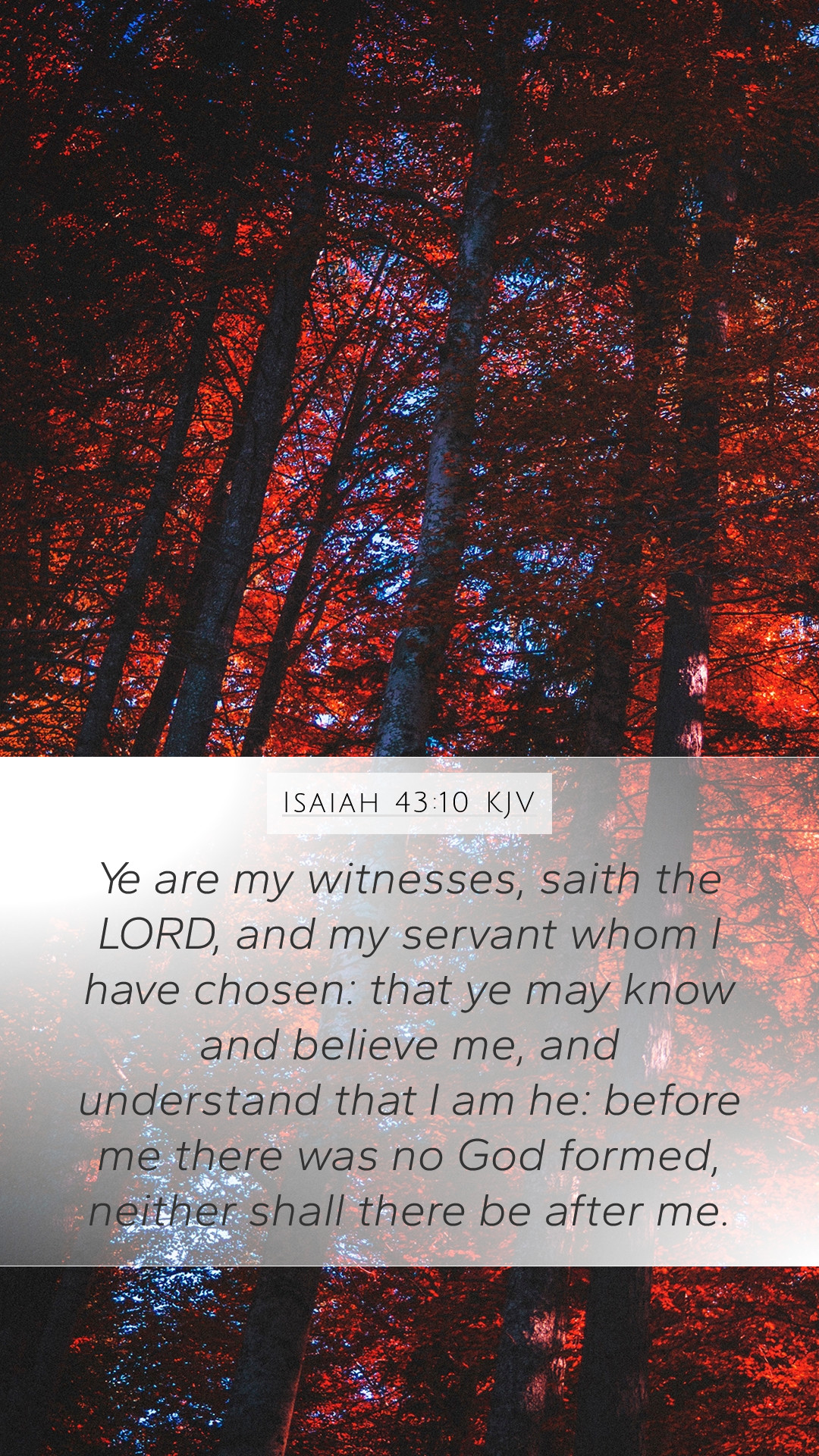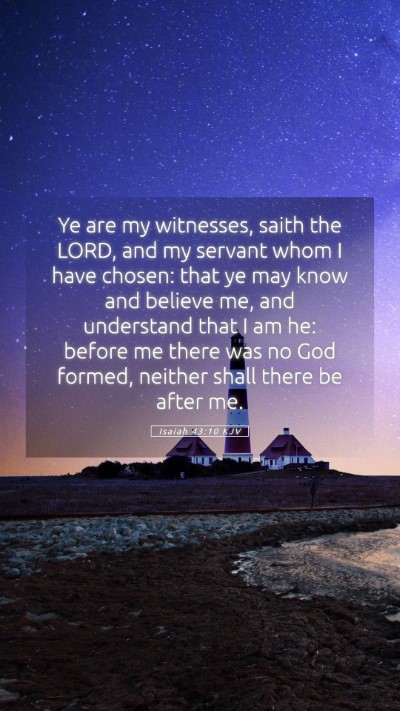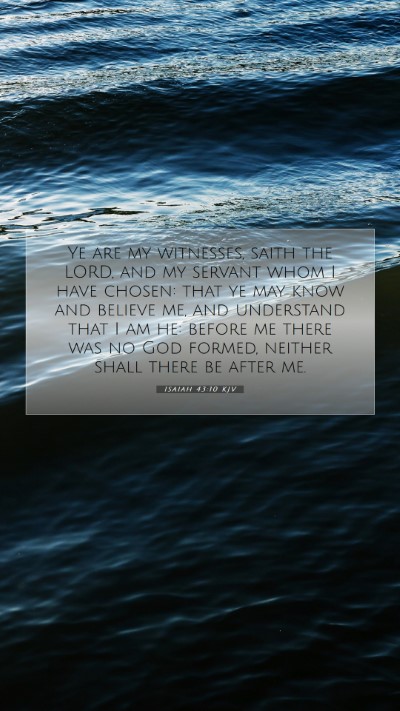Understanding Isaiah 43:10
Isaiah 43:10 states: "Ye are my witnesses, saith the Lord, and my servant whom I have chosen: that ye may know and believe me, and understand that I am he: before me there was no God formed, neither shall there be after me."
Meaning and Interpretation
The verse carries profound implications regarding the identity of God and the role of His chosen people. Each phrase is laden with theological significance, illuminating the relationship between the divine and humanity.
Divine Witness
This scripture highlights the role of the Israelites as witnesses to God’s nature and works. Matthew Henry emphasizes that witnessing entails declaring the truth and revealing God's essential character to the world. Thus, the Israelites embody the testimony to God's faithfulness and power.
Chosen Servants
Albert Barnes discusses the concept of being a chosen servant, indicating that this selection is rooted in God's sovereign will. The Israelites are set apart for a purpose, called to bear witness and fulfill the divine mission of spreading knowledge about God.
Knowledge and Belief
The call to "know and believe" suggests that faith is not blind but based on evidential understanding and personal experience with God. Adam Clarke elaborates on this, asserting that understanding God's nature leads to profound faith and trust in His promises.
Uniqueness of God
The assertion that there was no God formed before or after Him serves as a foundational truth about monotheism. This emphasizes God's singular dominance and supremacy over all creation, challenging any polytheistic views that may exist at the time. Theological implications here reaffirm the core of Judaic belief, as explored in public domain commentaries.
Insights from Public Domain Commentaries
- Matthew Henry: Emphasizes the idea that the Israelites are not merely passive recipients of God’s grace but active participants in His plan, tasked with witnessing His truth.
- Albert Barnes: Highlights the importance of understanding the deep-rooted reasons why God chose Israel, looking at their history and the covenant relationship.
- Adam Clarke: Provides a detailed exegesis, connecting this verse to broader themes in Scripture concerning God’s exclusive nature and His desire for relationship with His people.
Application of Isaiah 43:10
This verse prompts reflection on our personal faith and responsibilities as modern-day witnesses of God. To apply this passage to daily life, individuals can consider the following:
- Living as Witnesses: Just as ancient Israel was called to witness, contemporary believers are called to share their testimonies and the message of God’s love.
- Deepening Understanding: Engage in Bible study groups and tools that encourage deeper insight into Scripture, thereby nurturing a stronger belief and knowledge of God.
- Embracing Monotheism: Recognize and affirm the singularity of God in discussions, transforming public perception of spiritual realities and truths.
Related Bible Cross References
- Exodus 20:3: "Thou shalt have no other gods before me."
- John 17:3: "And this is life eternal, that they might know thee the only true God, and Jesus Christ, whom thou hast sent."
- Isaiah 44:6: "Thus saith the Lord the King of Israel, and his redeemer the Lord of hosts; I am the first, and I am the last; and beside me there is no God."
Conclusion
Isaiah 43:10 is a powerful verse that not only affirms the identity of God but also establishes the critical role of His followers as witnesses. Through understanding this scripture, we gain insights into our responsibilities and the nature of our relationship with the divine.


